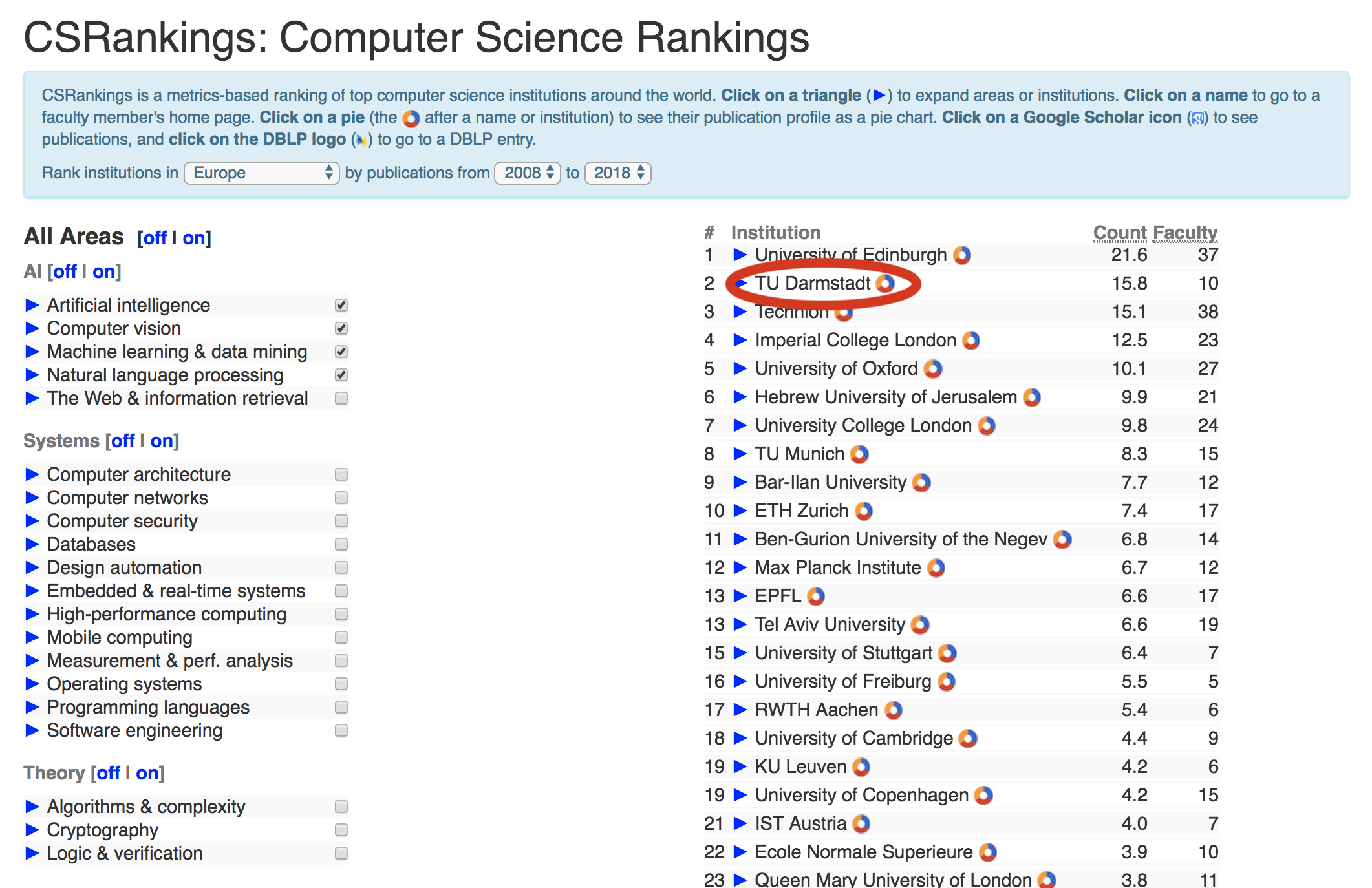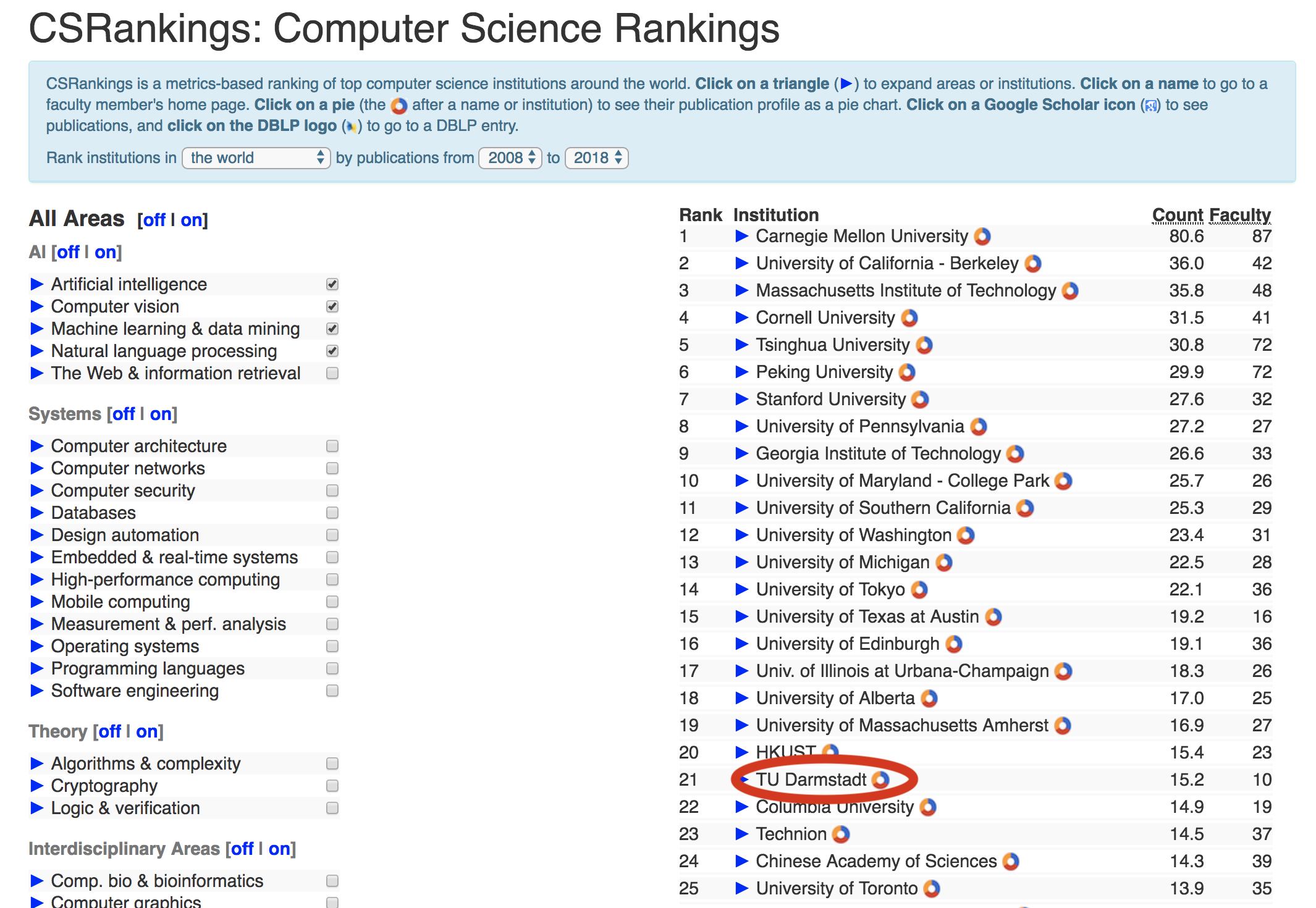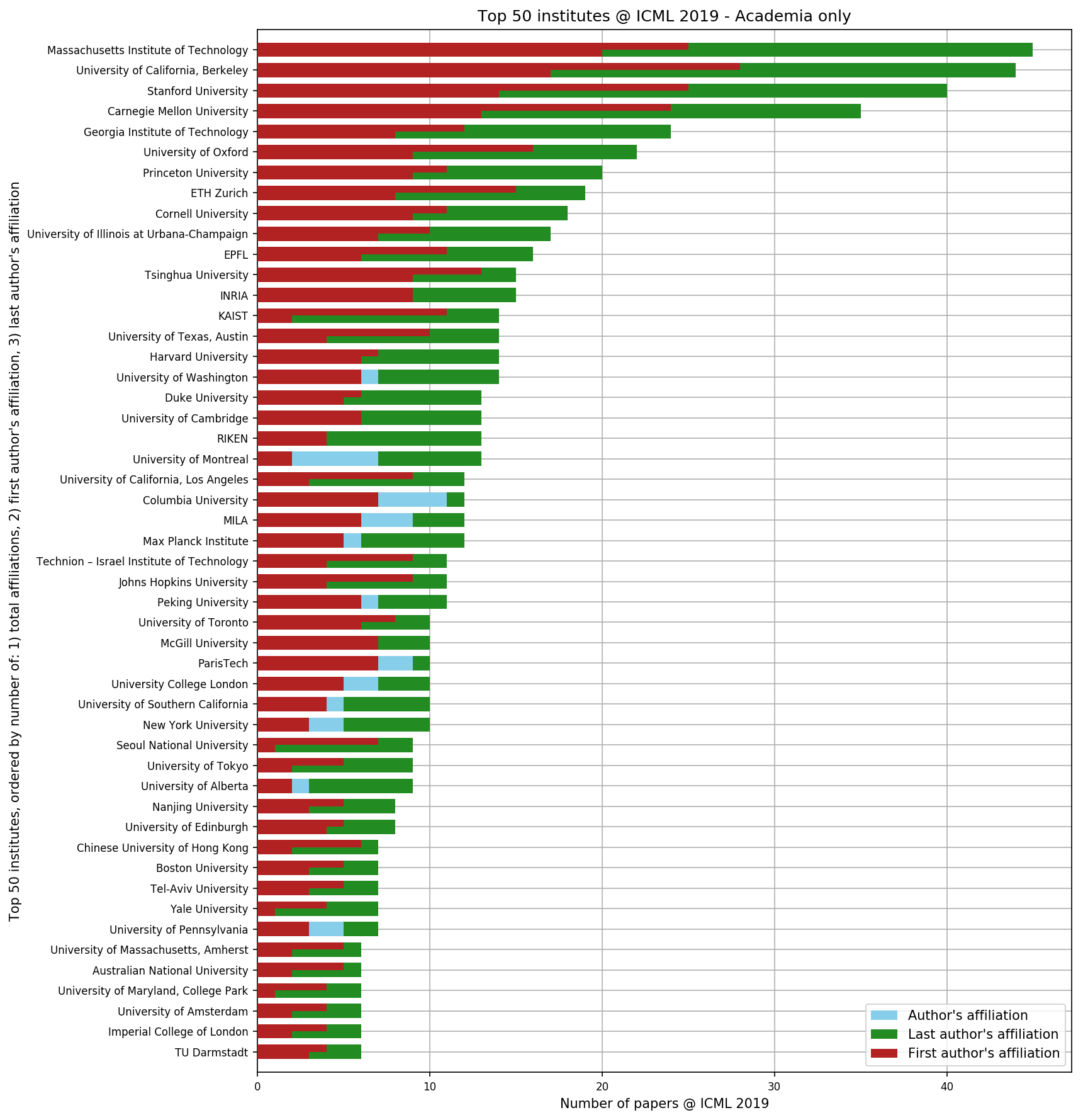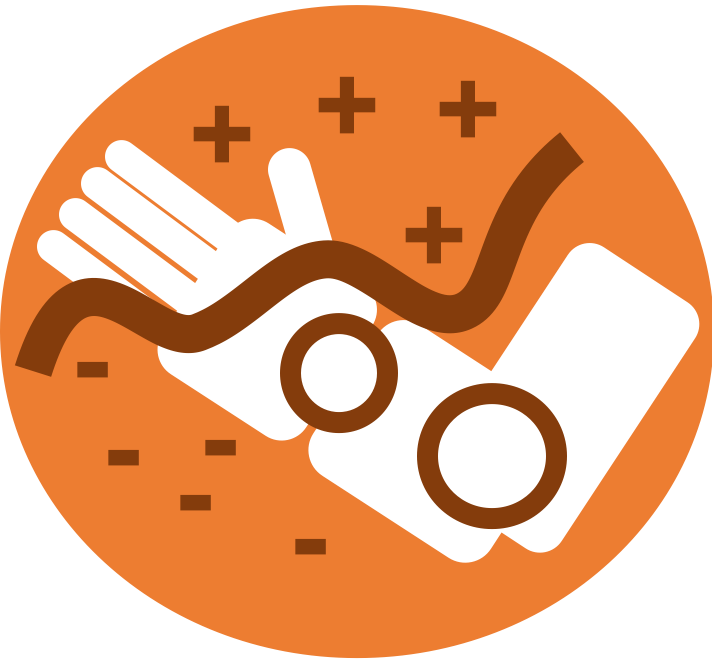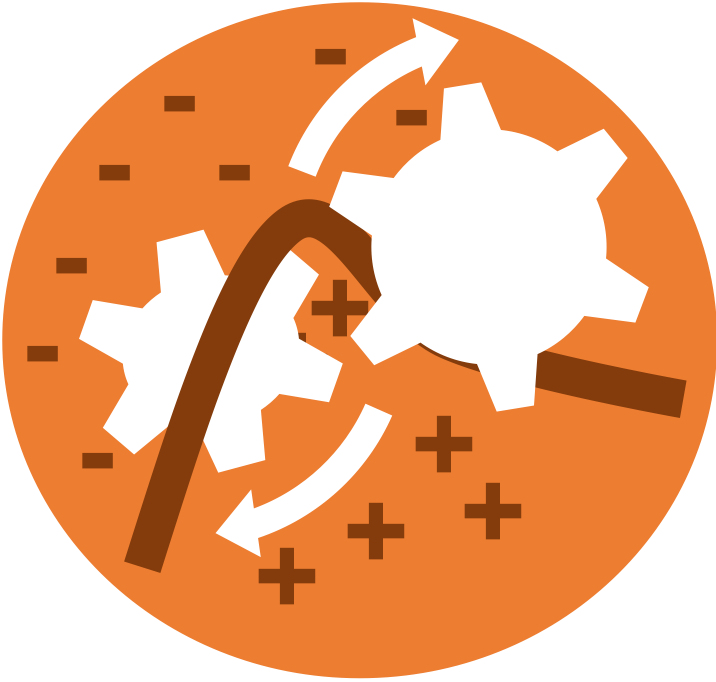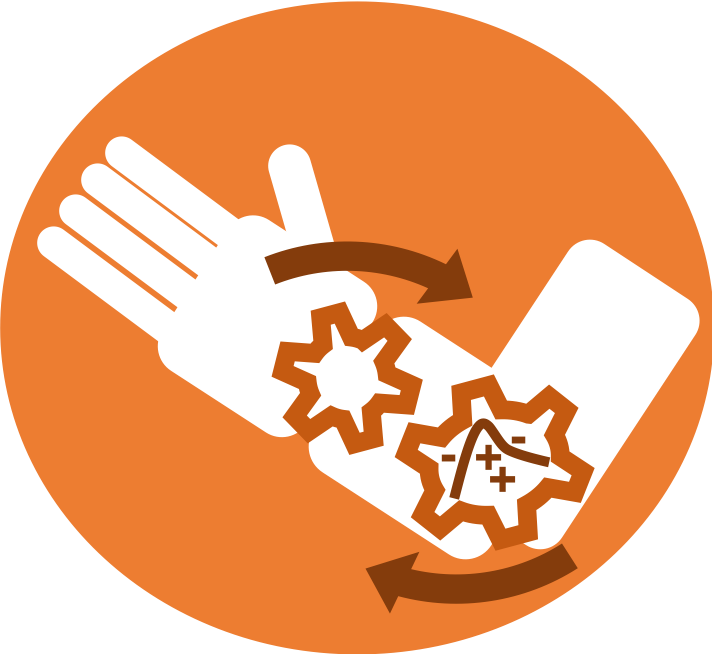


AI•DA mission.
Artificial Intelligence at TU Darmstadt (AI•DA) is an initiative of several
reserach groups at the TU Darmstadt to coordinate and advance core AI research. According to John McCarthy, one of the founders of the field, AI is "the science and engineering of making intelligent machines, especially intelligent computer programs. It is related to the
similar task of using
computers to understand human intelligence, but AI does not have to confine itself to methods that are biologically
observable." So, how can computers reason, learn and act?
How can computers learn with less help from us and data? How can computers understand images and natural text? How can robots learn to act? What are the
computational principle underyling human cognition? And what can machines learn from this? Can AI be made
understandable by us? How can intelligent machines and robots cooperate and interact with us in the loop? These are just few examples of the scientific questions AI•DA
is addressing in the unique environment provide by the TU Darmstadt, its Computer Science Department and its Centre for Cognitive Science. So, if your are interested in AI research, please do not hesitate to contact us.
More information in German can also be found at the "Kompetenz in Künstlicher Intelligenz" page of the TU Darmstadt.
AI•DA news.| July 2020: | AI•DA hosted an invited talk by Max Welling, the research chair in Machine Learning at the University of Amsterdam and a VP Technologies at Qualcomm. |
| July 2020: | AI•DA got an ICWSM paper accepted on detecting the conventions and moral orders followed in the field of AI. Congrats! |
| July 2020: | AI•DA gave an invited talk at the ICML workshop on "Bridge Between Perception and Reasoning: Graph Neural Networks & Beyond." |
| July 2020: | AI•DA got 3 papers accepted at PGM, the conference on probabilistic graphical models. Congrats! |
| June 2020: | The TU Darmstadt got 3 papers accepted at ICML, the major international venue on machine learning. Congrats! |
| May 2020: | AI•DA interviewed on ARD about "the future after covid19". |
| May 2020: | AI•DA's work on the moral choice machine got feature by Frontiers Science News. Congrats! |
| April 2020: | AI•DA starts a 3 Mio. EURO collaboration with NEXPLORE to explore "AI in Construction." Thanks for the trust that you put in us! |
| March 2020: | AI•DA got 7 papers accepted at SIGMOD, the major internaitonal venue on databases. Congrats! |
| March 2020: | AI•DA organized and hosted the Spring Symposium 2020 of the Fachgruppe Database Systems (FG DB). Thanks to all participants! |
| Feb. 2020: | Looking for AI experts in academia with a proven technical competency in your country? AI•DA introduced together with Andreas Hotho from U. Wuerzburg AI-Rankings. |
| Feb. 2020: | AI•DA's Dagstuhl Seminar on "Software Eengineering for AI-ML-based Systems" (SE4ML) was a lot of fun and very informative. Thanks to Miryung, Guy, and Thomas for the great coorganization! |
| Feb. 2020: | AI•DA featured in FAZ article about the EU's whitepaper on AI. |
| Jan. 2020: | AI•DA appointed to the Research Council of the University of Hamburg and to the working group "Handling of Research Data" of the Wissenschaftliche Kommission Niedersachsen. |
| Jan. 2020: | AI•DA gave opening keynote on Hybrid AI at CODS-COMAD 2020, Hyderabad, India. |
| Dec. 2019: | AI•DA sucessful at ICLR 2020. 5 accepted papers! |
| Dec. 2019: | AI•DA makes use of two more Nvidia's new DGX-2H supercomputers to further strengthen its strong AI position in Germany and the world. |
| Dec. 2019: | AI•DA is now a European Laboratory for Learning and Intelligent Systems (ELLIS) Unit. The goal of our ELLIS Unit IS•DA - Intelligent Systems at TU Darmstadt - is to push top AI research further and to keep top talent in machine learning and related AI research fields in Europe. |
| Dec. 2019: | AI•DA receives ERC Consolitor grant on robust and explainable deep networks in Computer Vision. Coongrats Stefan! |
| Dec. 2019: | AI•DA is founding board member of AI Frankfurt Rhine-Main, an AI network connecting companies, universities, research institutes and start-ups in the Rhine-Ruhr metropolitan region. |
| Nov. 2019: | AI•DA Ph.D. students Michael Lutter and Dorothea Koert received the "AI Newcomers" Award of the Year 2019 by the German Society of Computer Science. |
| Nov. 2019: | AI•DA gives invited talk on AI and policing at the BKA Autumn Conference 2019, touching also upon biases. |
| Nov. 2019: | AI•DA the best paper runner-up award in MICCAI 2019 workshop OR 2.0 and were finalists of the best presentation award (15 out of 1800+ submitted papers) for showing how AI can be employed for complete surgical planning. We also won an educational award. |
| Nov. 2019: | The Minister President of Hesse, Volker Bouffier, and the governor of the Austrian Federal State of Styria, Hermann Schuetzenhoefer, visted the TU Darmstadt and AI•DA to establish a close collaboration on AI. |
| Nov. 2019: | AI•DA gives invited talk on the future of AI at the 50 Years Anniversary Conference of the University of Bielefeld. |
| Oct. 2019: | AI•DA featured in an ARTE series showcasing recent developments in AI such as our moral choice machine. |
| Oct. 2019: | AI•DA gives tutorial on the Automatic Statistician at the Deutscher IT-Leiterkongress 2019 |
| Sept. 2019: | AI•DA recevied the German AI Award (Deutscher KI Preis) 2019, accompanied by a prize of EURO100.000. The award is under the patronage of the BILANZ magazin and supported by Airbus, the Apeiron Investment Group, the BMW Group, the Otto Group and the Maschmeyer Group. |
| Sept. 2019: | AI•DA discussed moral machines, preditive policing, and AI at the Bad Homburg conference on "AI: How can we trust algorithms?" |
| Sept. 2019: | AI•DA successful in the AI Innovation Competition of the Federal Ministry of Economic Affairs and Energy. |
| Sept. 2019: | AI•DA discussed publically with the Hessen Minister for Higher Education, Research and the Arts Angela Dorn and Jessica Heesen from the University of Tübingen about AI and ethics. |
| Sept. 2019: | AI•DA talked about AI in a podcast featured by "Hessen schaft Wissen". |
| Sept. 2019: | AI•DA coorganzied a Dagstuhl Seminar on "Logic and Learning" |
| August. 2019: | AI•DA part of a panel on "AI and Robotics" at the European Forum Alpbach |
| August 2019: | AI•DA's work on robot rescue and on the moral choice machine got featured in an multi-media online presentation. |
| August 2019: | One director and two fellows of ELLIS programs come from AI•DA. The programs are "Robot Learning: Closing the Reality Gap!", "Machine Learning and Computer Vision", and "ML in Earth and Climate Sciences" |
| August 2019: | AI•DA's work on robot rescue and on the moral choice machine got featured in the Frankfurter Rundschau. |
| July 2019: | AI•DA member of the IJCAI-JAIR 2019 Best Paper Award Committee. |
| July 2019: | AI•DA presents paper on interactively curating ML Pipelines at ACM SIGMOD, the premier international conference for database research. |
| July 2019: | AI•DA presents whitepaper of the the BMBF platform "Lernende Systeme" on "Maschinelles und Tiefes Lernen sind der Motor für 'KI made in Germany'" in Berlin. |
| June 2019: | Kristian Kersting elected as Fellow of the European Association for Artificial Intelligence (EurAI) for exceptional contributions to the field of Artificial Intelligence. |
| June 2019: | AI•DA wins Best Paper Award at the ICML 2019 Workshop on Tractable Graphical Models (TPM). |
| June 2019: | AI•DA's Best Paper Runner-up at IPCAI 2019 shows that automatic segmentation and trajectory planning for various clinical procedures at the temporal bone are feasible. |
| May 2019: | Wolfgang Bibel, Professor emeritus for Intellectics at the TU Darmstadt, named one of 10 researchers, who shaped AI in Germany the most. Congrats! |
| May 2019: | Six papers from Darmstadt accepted at ICML, the premier international conference on machine learning. Congrats! Actually, the TU Darmstadt is the only University from Germany among the Top 50 contributing academic institutions at ICML 2019. |
| May 2019: | AI•DA joint the KDD 2019 Best Paper Award Committee for the Applied Data Science Track. KDD is the premier interdisciplinary conference bringing together researchers and practitioners from data science, data mining, knowledge discovery, large-scale data analytics, and big data. |
| May 2019: | AI•DA is a jury member for the "Deutscher KI-Preis" of the German Magazin BILANZ in cooperation with Airbus, Presight Capital, the BMW group, McKinsey&Company and the Otto group. |
| April 2019: | AI•DA gives an invited talk on "Reproducibility in ML and AI" at the DFG conference on "Traceability and securing of results as essential challenges of research in the digital age" in Berlin. |
| April 2019: | AI•DA is a member of the Expert Committee of the Association of German Engineers (VDI) for fundamentals of intelligent learning systems. |
| April 2019: | AI•DA discusses with high school students the movie Blade Runner and AI as part of the Schulkinowochen in Hesse. |
| March 2019: | AI•DA presents a keynote on AI at the Spring convent of the Leibniz Association. |
| March 2019: | Three AI•DA members named Top 100 Influential Scholar 2018 by AMiner. The 2018 winners are among the most-cited scholars from the top venues of their respective subject fields (such as Artificial Intelligence) in the recent ten years (between 2007 and 2017). |
| Feb. 2019: | AI•DA makes use of Nvidia's new DGX-2 supercomputer, which packs 2 petaflops of computing power and 512GB HBM2 memory, to further strengthen its position as No. 1 for AI in Germany. |
| Feb. 2019: | AI•DA and the Bosch Center for AI (BCAI) organize a campus day on AI at the TU Darmstadt. |
| Feb. 2019: | AI•DA gives a full week AI/ML course at the Bosch Innovation Campus in Renningen. |
| Jan. 2019: | AI•DA is a co-coordinator of the new RMU Network for Deep Continuous-Discrete Machine Learning (DeCoDeML). The goal is to make deep models more comprehensible or at least perceived in such a way that they can be related to human understanding. |
| Dec. 2018: | The AlphaGo like chess bot CrazyAra, supported by the AI•DA course on deep learning, beats the 2017 crazyhouse world champion JannLee. |
| Dec. 2018: | AI•DA is member of CLAIRE's informal advisory group on Machine Learning. |
| Dec. 2018: | AI•DA is founding member of ELLIS, the European Laboratory for Learning and Intelligent Systems. |
| Nov. 2018: | The AI•DA-CLAIRE Symposium about the the beginnings, the present and the future of AI-research on the occasion of Prof. Dr. Wolfgang Bibel's 80th birthday is a great success. Thanks to Wolfang Wahlster for the wonderful Laudatio and to all speakers for their wonderful talks. |
| Nov. 2018: | Jan Peters elected as Fellow of the Institute of Electrical and Electronics Engineers (IEEE) for exceptional contributions to the field of robotics. Congrats Jan! |
| Oct. 2018: | Dr. Angela Merkel, Chancellor of Germany, describes the TU Darmstadt as a "jewel in questions of AI with all its sub-areas". |
| August 2018: | We are a supporter of the ELLIS initiative for the establishment of a confederation of laboratories for ML research in Europe |
| July 2018: | AI•DA hosts interim meeting of our "Artificial Intelligence" Research Training Group of the "Studienstiftung des deutschen Volkes" at the TU Darmstadt. Thanks for all the exciting discussions! |
| June 2018: | Two Dagstuhl seminars accepted: "Logic and Learning" and "Software Engineering for AI-ML-based Systems." Exciting! |
| June 2018: | The call for the establishment of a confederation of laboratories for AI research in Europe (claire-ai.org) is out. We are a key supporter! |
| June 2018: | AI•DA participats in BMBF expert panel on "Made in Germany: Self-learning systems as Advantage for Tomorrow" at CEBIT 2018. |
| June 2018: | Founding EiC of the new Frontiers in Big Data journal on "ML and AI". Check it out! |
| April 2018: | AI•DA joins the Technical Review Board of the Robert Bosch Centre for Data Science and AI at IIT Madras, India. This is an interdisciplinary research centre for AI set up at IIT Madras. Exciting! |
| Feb. 2018: | AI•DA joins the working group "Technological Enablers and Data Science" of the Plattform Self-Learning Systems of the Federal Ministry for Education and Research (BMBF). Excited to help shaping the future of AI in Germany. |
- AI•DA Excellence in AI
- AI•DA is the #1 German and the #2 European institution for AI, according to csrankings.org
- TU Darmstadt the only University from Germany among the Top 50 contributing universities at the world's top conference on machine learning 2019
- AI•DA is part of the AI hotspot "Brain Valley" in Germany
- What are Artificial Intelligence (AI) and Machine Learning (ML) ?
- What is an AI professorship about?
- The AI Publication Landscape
